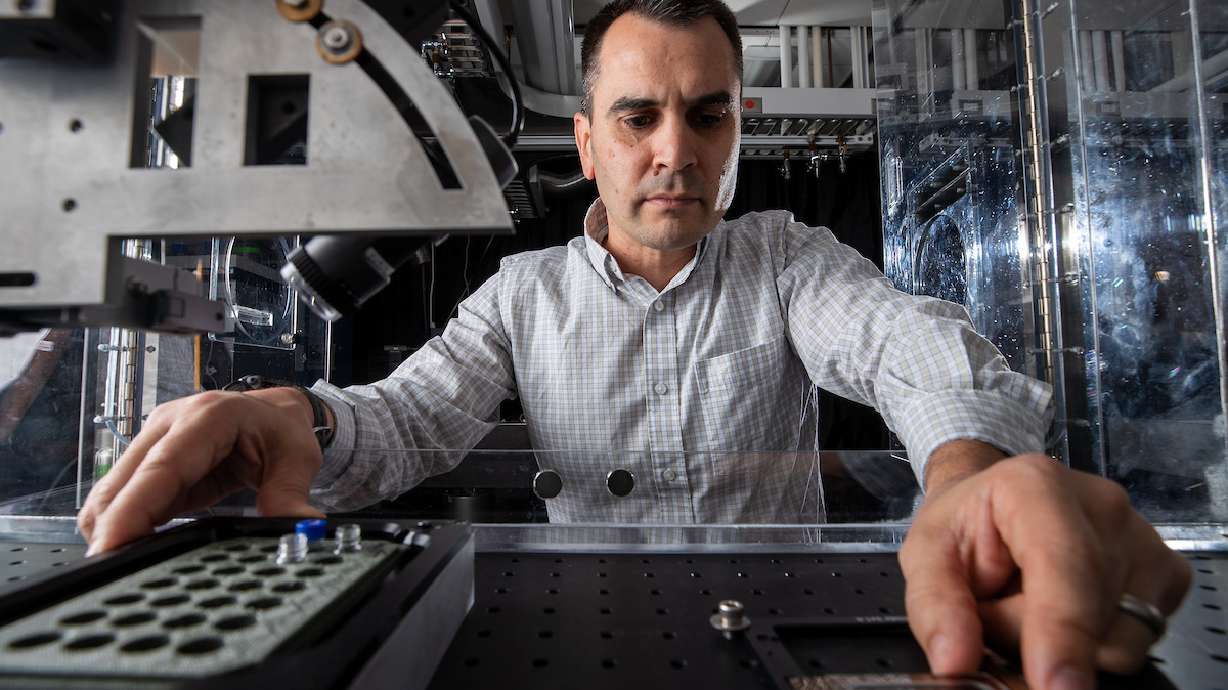Estimated read time: 3-4 minutes
This archived news story is available only for your personal, non-commercial use. Information in the story may be outdated or superseded by additional information. Reading or replaying the story in its archived form does not constitute a republication of the story.
SALT LAKE CITY — Treating cancer can be tough enough, but researchers at Brigham Young University believe monitoring treatment — including whether it is working or not — could be easier.
Ryan Kelly, an associate professor of chemistry who recently transferred to BYU from the northwest, has developed technology to see into the tiny cells that slough off of some cancers in the body and identify the proteins that provide information about the cancer.
"It used to be that the only thing you could do with (circulating tumor cells) is count them, which would usually correlate with cancer," he said. "But, it's not always effective. We want to get beyond that."
By measuring the proteins within those cells that come directly from cancerous tumors, Kelly said physicians will be better equipped to know what is working with a therapy regimen and continue or modify treatment accordingly.
"Proteins are the things that drugs target," he said. "They can tell us what goes wrong in the body."
And, while doctors can and typically do perform biopsies to check on whether a given treatment is working, Kelly assumes they don't do it as often as they would like to. Surgery can be invasive, he said.
So, instead of large amounts of tissue taken from the body in a biopsy, Kelly's research shows that the same information is available inside the proteins of a single cell.
That, he said, can be obtained with a simple blood draw.
"With further development, it should be very valuable for monitoring how a therapy is impacting a cancer," Kelly said, adding that by analyzing specific cells, circulating tumor cells that come directly from a tumor in the body, "we can find things that will provide caregivers with information that would lead them to change a dosage or switch treatment options."
"It's kind of like developing a new microscope, in the sense that we can look at things with more granularity that has been possible previously," said Kelly, who remains affiliated with the U.S. Department of Energy's Pacific Northwest National Laboratory where the experiments for his most recent research was performed.
He was drawn to cancer research because of its "value to society."

The research, funded by the National Institute of Health's National Cancer Institute, was published in the latest edition of Analytical Chemistry.
Kelly and his team, part of which remains at the lab in Washington, have filed three patents on the microscopic technology they've developed. It's expected that it could be ready to license within a couple of years.









